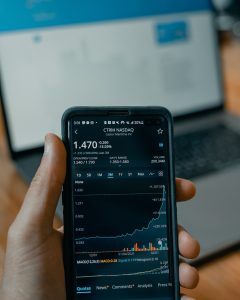Forex trading is a popular and lucrative investment option that involves buying and selling currencies from around the world. However, as with any trading market, there are scams that can lure unsuspecting investors into losing their hard-earned money. Forex scams can take many forms, but they all share a common goal: to deceive investors and make a profit at their expense. In this article, we will explore how forex scams work and how you can avoid falling victim to them.
The most common type of forex scam is the Ponzi scheme. In this scheme, the scammer promises high returns on investment to attract new investors. The scammer will then use the money from new investors to pay off old investors, creating the illusion of a profitable business. In reality, the scammer is using the money from new investors to pay off old investors and is not generating any legitimate profits. Eventually, the scheme collapses when the number of new investors decreases, and the scammer is no longer able to pay off old investors.
Another common forex scam is the signal seller. In this scheme, the scammer claims to have insider knowledge of the forex market and will provide trading signals to investors for a fee. The scammer will often promise high returns on investment, but in reality, the signals are either random or based on publicly available information. The scammer profits from the fees charged to investors and may also receive a commission from the broker for the trades made by investors using their signals.
Another type of forex scam is the fake broker. In this scheme, the scammer sets up a fake brokerage firm and then solicits investors to open trading accounts. The scammer will often promise low spreads and high leverage to attract investors. Once the investor deposits money into the trading account, the scammer will either refuse to allow the investor to withdraw their funds or will simply disappear with the investor’s money.
Finally, there is the fake investment opportunity scam. In this scheme, the scammer will offer investors the opportunity to invest in a forex trading fund or pool. The scammer will promise high returns on investment and will often use fake testimonials or false claims of regulatory approval to gain the investor’s trust. Once the investor invests their money, the scammer will either disappear with the funds or use them to make trades that are not profitable.
So, how can you protect yourself from forex scams? The first step is to do your research. Before investing your money with any broker or investment opportunity, check their credentials and regulatory approval. Look for reviews from other investors and research the company’s history. If a broker or investment opportunity seems too good to be true, it probably is.
Another way to protect yourself from forex scams is to be wary of unsolicited offers. If someone contacts you out of the blue with an investment opportunity, be suspicious. Scammers often use cold-calling, email, or social media to target potential victims. If you are unsure whether an investment opportunity is legitimate, seek advice from a financial advisor or do more research before committing any funds.
Finally, be wary of promises of high returns with little or no risk. Forex trading is a high-risk investment, and any legitimate broker or investment opportunity will acknowledge this fact. If someone is promising you high returns with no risk, they are likely a scammer.
In conclusion, forex scams come in many forms, and the best way to protect yourself is to do your research, be wary of unsolicited offers, and be skeptical of promises of high returns with little or no risk. If you do fall victim to a forex scam, report it to the authorities immediately and seek legal advice to recover any lost funds. With vigilance and caution, you can avoid falling victim to forex scams and make informed investment decisions.






